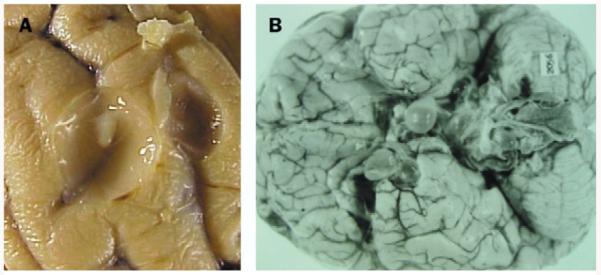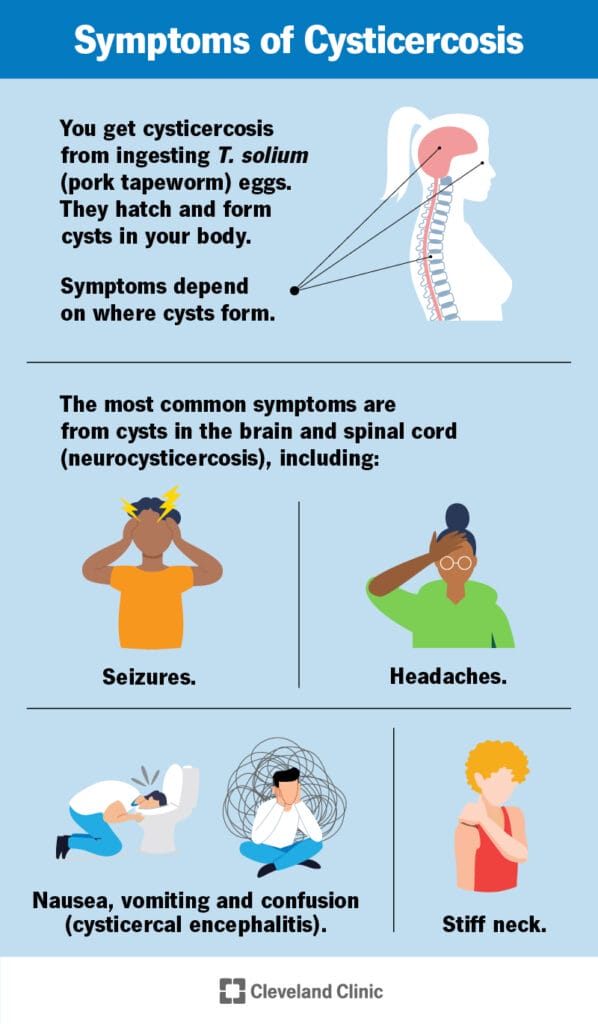Why can’t Muslims eat pork in Islam is because it is Haram (Forbidden) to eat. In this post, we will delve deeper into both scientifically and spiritually the main reasons Why can’t Muslims eat pork in Islam!
In Islam, eating pork is seen as impure and is not allowed. Muslims who eat swine meat are not considered to be following Islamic teachings properly. They may be seen as not practicing Islam correctly, However, it’s important for them to repent (dua for fogiveness) and strive to avoid eating swine meat in the future to adhere to Islamic guidelines.
Pigs and chickens are usually clean in nature, but on farms, they can get dirty because of people. Chickens are okay to eat if we handle them cleanly, and birds like turkeys, which are similar to chickens, are also safe to eat if we keep things clean.
Pigs are different from chickens because they can be a little bit toxic, even if they’re healthy and clean. They also carry tiny parasites called trichinella, which don’t hurt them but can make people sick with something called trichinosis. In the United States, it’s against the law to sell pork from pigs unless they’ve been injected with one of two known carcinogens to prevent trichinosis.
So, all swine meat sold legally in the USA is carcinogenic (can cause cancer) instead of making you sick with trichinosis. This shows how serious trichinosis can be, since the government prefers the meat to be cancer-causing rather than a trichinosis risk.
Even vegetables, beef, chicken and other meats too have infectious germs, but pork tends to have a higher concentration of germs usually has more germs than other meats. The more we know about pork, the more worried we get about eating it.
Key Takeaways
- Balantidium Coli is common in pigs.
- Diseases from pigs are common in pig-raising countries.
- Many people in the U.S.A. and Canada get worms from eating pork.
- There’s no cure for these diseases caused by pork.
- Some parasites in pigs can’t be killed or expelled.
- Medical science hasn’t found a specific treatment for some pork-related diseases.
- Erysipelothix bacteria is found in 30% of healthy pigs, making eradication impossible. Today, pig farms use hygienic methods, but the problem remains the same as centuries ago. Even if drugs are found to treat pork-related diseases in the future, it still won’t make eating pork safe, just like finding snake-bite serums doesn’t make playing with cobras safe.
Quran on eating Pork
Pork is entirely unclean, and eating its meat, fat, or any swine meat products, as well as using its skin or any other body parts, is strictly HARAM in Islam (forbidden). Allah (ﷻ) has said in various places in the Holy Qur’an:
Forbidden to you are carrion, blood, and swine.
In Islam that not only one should avoid consuming pork, or pork productst, but you cannot sell it or raise them to sell.
Health risk assessment: Vegetables, Meat vs Pork
This list talks about germs and parasites in pork. Some of them can spread to people and make them very sick, even causing death. This shows that Islam’s teachings are often right, especially as science advances. Parasitology, a branch of science, says that swine meat can carry parasites like the pork tapeworm and trichina roundworm, which can cause serious diseases in humans too.
One issue is a parasite called “Balantidium coli.” It lives in the large intestine and is the biggest parasite that affects humans.
| Meat Type | Parasites | Germs | Uncurable Disease | Concerns |
|---|---|---|---|---|
| Chicken | Salmonella, Campylobacter | Moderate | None | Risk of food poisoning, digestive issues |
| Beef | E. coli O157:H7, Listeria | Moderate | None | Risk of food poisoning, digestive discomfort |
| Vegetables | Various, including E. coli and Salmonella | Low | None | Potential for food poisoning, gastrointestinal issues |
| Pork | Trichinella spiralis, Taenia solium, Clonorchis Sinesis, Parago-nimus, Faciolopsis Buski, hookworms. | High | Trichinosis | High risk of food poisoning, potential for contracting uncurable diseases like trichinosis |
- Roundworm:
- Parasite, 6 to 12 inches long.
- Also known as “travelling worm.”
- Transferred easily from pigs to humans, causing damage.
- Hookworm:
- Young worms enter human skin, causing infection.
- Pigs ingest human excreta containing parasite eggs.
- Infectious worms pass out of pigs and infect humans.
- Faciolopsis Buski:
- Discovered by Lankaster (1857) and Oliver (1902).
- Latent in pig’s small intestines, transferred to water-snail, then to humans.
- Prevalent in China.
- Paragonimus:
- Lives in pig lungs, discovered by Dr. Mason in 1880.
- Causes pneumonia in pigs.
- No known method to kill or expel parasites.
- Clonorchis Sinesis:
- Discovered by Cobbold (1875) and Looss (1907).
- Parasite inhabits pig’s liver bile passage.
- Infects humans in close contact with pigs.
- Causes serious liver and chest diseases.
- Other diseases connected with pork:
- Erysipelas:
- Caused by Erysipelothrix Rhusiopathiae germ.
- Occurs in acute and chronic forms.
- Symptoms include high fever, reduced activity, and appetite.
- Chronic form causes skin damage and joint and heart valve problems.
- Erysipelas:
The Chambers Encyclopaedia explains that these bacteria can survive in the soil for a long time and is found in about 30% of healthy pigs. It’s hard to get rid of, and getting sick from it isn’t straightforward. What’s even more worrying is that the same bacteria causes the same disease in humans. So, anyone eating pork from even a healthy pig is at risk of getting sick or even dying. The Encyclopaedia mentions that this germ also causes a disease called ‘erysipeloid’ in huma
Why is pork haram scientifically?
What problems can humans face if they eat it? What does “Balantidium coli” have to do with pigs and how does it affect people?
“Balantidium coli” is a parasite that usually lives in pigs’ intestines. It comes out in pig poop and forms a shell around itself, called a “cyst,” when it’s outside the pig. When people eat contaminated food, like pork, the cyst breaks open in their intestines, releasing live parasites. This was discovered by Dr. Malmston in 1857 and Stein in 1862.
Dr. E. A. Widmer wrote in his article “Pork, Man and Disease” that Balantidium coli is very common in pigs, with studies showing it in 21 to 100 percent of pigs in different countries. It’s not as common in humans, with around one percent of people in Puerto Rico having it. But when humans do get it, they can have serious symptoms. It’s believed that pigs are the main source of this infection in humans.
viable cyst. B: racemose cysticercosis in the base of the brain.

Source: ncbi.nlm.nih.gov
Does Bible say not to eat Pork?
Christians are also forbidden from consuming pork according to their scriptures. This prohibition can be found in the Bible, specifically in Leviticus 11:7-8, where it states, “And the swine, he is unclean to you. Of the flesh shall ye not eat, and their carcase shall ye not touch; they are unclean to you.” This command is reiterated in Deuteronomy 14:8.
In the Christian faith, the question of whether it’s permissible to consume pork often arises. Many Christians wonder why pork is considered forbidden, or “haram,” just like in Islam, and Judaism. To find the answer, it’s essential to look at the teachings of Jesus Christ.
When examining the Bible, we find that many prohibitions against consuming pork come from the Old Testament, which is also a sacred text for Christians. However, Christians follow not only the Old Testament but also the New Testament, which contains the teachings of Jesus Christ.
Jesus Christ, in the New Testament, affirmed the importance of the Old Testament laws. He stated, “Think not that I am come to destroy the law, or the prophets: I am not come to destroy, but to fulfil.” This means that Jesus did not come to abolish the laws of the Old Testament but to fulfill them.
Jesus emphasized the enduring nature of these laws, saying, “For verily I say unto you, Till heaven and earth pass, one jot or one little shall in no wise pass from the law, till all be fulfilled.” He made it clear that not even the smallest part of the law would be abolished until all had been fulfilled.
Furthermore, Jesus warned against disregarding even the least commandments of the Old Testament, stating, “Whosoever therefore shall break one of these least commandments, and shall teach men so, he shall be called the least in the Kingdom of Heaven.”
Therefore, for Christians, the prohibition against consuming pork, as outlined in the Old Testament, remains relevant due to Jesus Christ’s affirmation of the importance of these laws. As such, many Christians adhere to this prohibition as part of their religious practice.

Source: my.clevelandclinic.org
Why can’t muslims eat pork?
Muslims can’t eat pork because it’s forbidden in Islam. The Quran says pork is unclean and eating it, or any pork products, is strictly forbidden, or “haram.” This includes not only eating pork but also selling it or raising pigs to sell. The Quran specifically mentions pork, along with carrion and blood, as things Muslims should not consume.
Muslims can’t eat pork because it can cause a serious disease called dysentery. Dysentery has severe symptoms and can even be fatal. Unfortunately, there’s no specific cure for dysentery caused by a parasite called Balantidium coli.
It can contain harmful worms like Trichinella Spiralis, also known as Trichina Worms. Dr. Glen Shephered’s article explains the dangers of eating pork infected with these worms. About one in six people in the United States and Canada have these worms in their muscles, a condition called Trichinosis. Some infected people show no symptoms, while others recover slowly, become permanently disabled, or even die.
There’s no cure for this disease, and antibiotics or vaccines don’t work against these deadly worms. When you eat infected meat, these tiny worm capsules grow into full-size worms and reproduce rapidly, causing various symptoms that can resemble other diseases, making diagnosis difficult.
Why don’t Muslims eat gelatin?
Muslims don’t eat gelatin because it might contain pig parts, which are not allowed in our religion. If the gelatin is made from cows or other animals that are allowed, then it’s okay to eat. But if it’s made from pigs, it’s not allowed. We Muslims avoid eating anything that might have touched pig parts.
If someone ate gelatin without knowing it’s made from pigs and then find out later, they should repent to Allah (mercy of ALLAH) and not eat it again.
Gelatin is made from boiling animal bones, skins, and tendons, and then cooling it into a jelly-like substance.
Why is Pork the dirtiest meat?
Pork is considered the “dirtiest” meat because pigs eat a wide range of things, including grains, bugs, dead animals, and even their own feces. Their digestive system processes food quickly, storing any toxins in their bodies.
Pigs have few sweat glands, so they can’t get rid of toxins easily. Eating processed meats like bacon and ham has been linked to cancer. Pork can also carry diseases like swine flu and trichinellosis, which can be passed to humans if the meat is undercooked.
